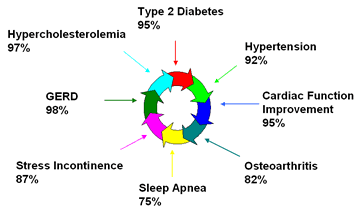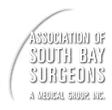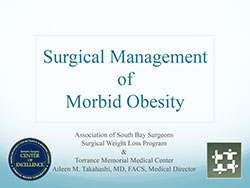Explore Benefits and Risks
Surgery to produce weight loss is a serious undertaking. Anyone thinking about surgery should understand what the operation involves. Patients and physicians should carefully consider the following benefits and risks:
Benefits*
Right after surgery, most patients lose weight quickly and continue to lose for 18 to 24 months after the procedure. Although most patients regain 5 to 10 percent of the weight they lost, many maintain a long-term weight loss of about 100 pounds.
Co-Morbidities Resolved/Improved |
Surgery improves most obesity-related conditions. For example, in one study blood sugar levels of 83 percent of obese patients with diabetes returned to normal after surgery. Nearly all patients whose blood sugar levels did not return to normal were older or had lived with diabetes for a long time.
Risks*
Ten to 20 percent of patients who have weight-loss surgery require follow-up operations to correct complications. Abdominal hernia was the most common complication requiring follow-up surgery, but laparoscopic techniques seem to have solved this problem. Less common complications include breakdown of the staple line and stretched stomach outlets. Bloot clots and risk of pulmonary embolism are possible but rare (<1%). Pulmonary embolus is the most common cause of death after bariatric surgery.
Some obese patients who have weight-loss surgery develop gallstones. Gallstones are clumps of cholesterol and other matter that form in the gallbladder. During rapid or substantial weight loss, a person's risk of developing gallstones increases. Taking supplemental bile salts for the first 6 months after surgery can prevent gallstones. Nearly 30 percent of patients who have weight-loss surgery develop nutritional deficiencies such as anemia, osteoporosis, and metabolic bone disease. These deficiencies usually can be avoided if vitamin and mineral intakes are high enough. Women of childbearing age should avoid pregnancy until their weight becomes stable because rapid weight loss and nutritional deficiencies can harm a developing fetus; this is usually about 2 years.
* Disclaimer: The testimonials, statements, and opinions presented on our website are only applicable to the individuals depicted, and may not be representative of the experience of others. The testimonials are provided voluntarily and are not paid, nor were they provided with free services, or any benefits in exchange for said statements. The testimonials are not indicative of future results or success of any other individuals. Association of South Bay Surgeons a Medical Group, Inc cannot and does not guarantee the medical outcome or the results of individuals utilizing the services provided by us.*

Request a Consultation »
FREE INFO SESSION
Our Program
LAP-BAND®
Roux-en-Y Gastric Bypass
Sleeve Gastrectomy
Tues, Dec 12
Thurs, Dec 14
Tues, Dec 19
Tues, Jan 9
5:00 - 6:00 PM
23451 Madison Street
Suite 340
Torrance, CA 90505
Please call if you have questions
(310) 373-6864
(No reservation required)






